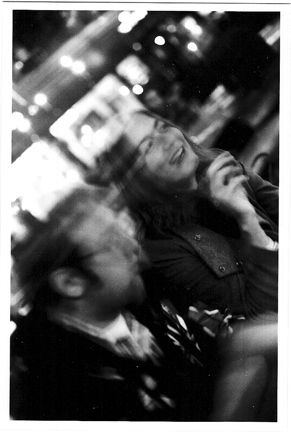Here comes trouble. Her name is Ada.

“Good designers make trouble.” – Tibor Kalman
Ada Louise Huxtable wasn’t a designer, but she made trouble. About design. For designers.
Sometimes, I’m ashamed by how much I don’t know. I think I’ve heard of Ada Louise Huxtable, but would never have been able to place her work or the design significance of it until I read The Long View, an article in the March 2011 issue of Dwell, written by Aaron Britt.
Well, …. girl crush! I immediately added her to my list of female design heros, which is embarrassingly short: Paola Antonelli, Jane Jacobs, and my favorite design prof, Natalia Ilyin. A Pulitzer prize winner and MacArthur Genius, Huxtable (still offering acerbic, peppered criticism at 90) is feisty and opinionated. As most women who make lasting impressions are. Britt writes about her book on architecture criticism, Kicked A Building Lately?:
Giving a building a good skeptical kick, as you might the tires of an old car, serves as a larger metaphor for Huxtable’s critical tack. Her brand of journalism – one she once summarized as a persistent search for “quality, responsibility, and good sense” – asks not so much “Is this cool?” as “Is this necessary?” It’s an ethos Huxtable feels is increasingly lost in current criticism.
“We’re treating architecture too much as art alone. And it’s too much a part of our celebrity culture,” she says. “People’s eyes glaze over at the prospect of talking about architecture’s sociological roles, but that doesn’t have to be boring, and it’s absolutely essential to figure it in.”
Which makes me think of Alexandra Lange’s recent admonition in her post Design Blogs: The Vacuum of Enthusiasm on Design Observer to “Be meaner.”
Be meaner. On the front page of my ideal design blog is a daily fugging of something from the world of visual culture. That’s essentially what Unhappy Hipsters is doing for Dwell, or more specifically, for Dwell’s preferred mode of architectural photography. But I can tell they are already tiring of their limited field — the captions are getting wordier, generally a sign of weariness. Or Pr*tty Sh*tty for advertising but again, I think he might be getting tired. A rotating cast of bloggers, each tasked with a different visual field, could provide the morning hit of acid I crave. The internet creates much more opportunity for short and shallow and funny (as well as long and thought-provoking and serious). Remember the instant viral jokes about the iPad? Not to bite the hand that feeds (only in the digital sense), but sometimes this site can be a little snoozy. More criticism and shorter criticism might give it something readers had to look at every day. As I tell my students, when you are primarily writing a sweet review, it is important to add a dash of pepper. Love doesn’t mean you have to love everything.
The notion of that one simple question, “Is this necessary?” is more appropriate today than ever before. Were we to ask it more often –sincerely, reflectively – I’m positive the answer most of the time would be a resounding “No.” And Lange’s advocating meanness is, the way I see it, just another way to phrase that question. Because, to bookend this post with another famous quote, “If you don’t stand for something, you will fall for anything.”
Thank you, Malcolm X. I think I will. Even if it means being meaner.